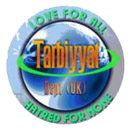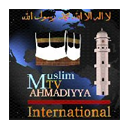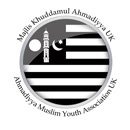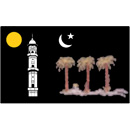Financial sacrifices
Allah has stressed in the Holy Qur’an that every Muslim should make financial sacrifices. There are two main sacrifices required:
a) Zaka’at b) Spending in the way of Allah
The Holy Quran states:
Never shall you attain to righteousness unless you spend out of that which you love; and whatever you spend, Allah surely knows it well.
Holy Qur’an, Chapter 3, verse 93
The alms [of Sadaqat] are only for the poor and the needy, and for those employed in connection therewith, and for those whose hearts are to be reconciled, and for the freeing of slaves, and for those in debt, and for the cause of Allah, and for the wayfarer – an ordinance from Allah. And Allah is All-Knowing, Wise.
Holy Qur’an, Chapter 9, verse 60
Furthermore we are informed by Allah that whatever we give, He will bless us with far more. It states:
The similitude of those who spend their wealth for the cause of Allah is like the similitude of a grain of corn which grows seven ears, in each ear a hundred grains. And Allah multiplies it further for whomsoever He pleases; and Allah is Bountiful, All-Knowing.
Holy Qur’an, Chapter 2, verse 262
To achieve righteousness, a believer must make sacrifices out of what he loves best, whether it is money, property or possessions. The Ahmadiyya Movement is a spiritual Organisation which is not involved in any kind of worldly business. Its activities depend solely on the donations of its members. The good thing about these sacrifices that the members make is that you see where and how your money is being used. For instance, construction of Mosques throughout the world, publishing literature, even having our own Satellite Television Station – M.T.A. International. All these things and much more is done solely by contributions and sacrifices of the members. Furthermore, Hazrat Khalifatul Masih V may announce new schemes for the need of the time and members happily contribute knowing that they are winning the pleasure of Allah and that Allah will provide them with far better things.
The contributions that members make are known as chandas. There are many different categories where you may wish to make a contribution and you should specify which Chanda you wish to give your money to. To help the members realise the sort of sacrifice expected from them, some chandas have a fixed rate for guidelines. It is found that the best way to cope with financial hardship is in fact to give in the way of Allah. It may seem a strange concept, that when you need to scrimp and save, you are asked to give, but in reality, you will achieve nothing without the blessings of Allah. No matter how much you save, unless Allah permits you to improve your condition, you will never be able to achieve it. Therefore, by making sacrifices, Allah appreciates those sacrifices and opens up doors for you. Some of the various chandas are explained below and Huzoor has informed us that we should encourage members to win blessings in this way as soon as possible.
Zaka’at: Zaka’at is one of the five pillars of Islam. This is for those people who have money, gold or silver or property and animals which are not in use for one full year. You have to pay 2½%. There is a minimum amount necessary and this is not for Muslims who have less than that amount, therefore it is only for those who are well off and the money is given to the poor and needy.
Wassiyyat: This scheme was set up by the Promised Messiah under divine direction and is a chanda for those members who are striving to be the elite of the Community. For such members they are required to make a will in favour of the Community pledging 1/10th to 1/3rd of their total assets to the Jama’at at the time of their death. The person (known as a Moosi) also donates 1/10th to 1/3rd of his yearly income. This is instead of Chanda Aam. The Moosi is also expected to keep to a high moral standard throughout his life.
Chanda Aam: This is a chanda for all working members of the community. They are required to contribute 1/16th of one’s income from all sources after taxes. The Chanda Aam year is from July to June. The money is used for the various activities of the Jama’at.
Jalsa Salana: This is a chanda which is used exclusively for the expenses of the Jalsa Salana (Annual Gathering). Since the Khalifa is now living in this country, it has become an International Gathering and around 30,000 people attend for at least three days. During these days, all food, accommodation etc. is provided free. To pay for these expenses, members contribute to this fund which is set at 1/120th of one’s annual income from all sources.
Tahrik-i-Jadid: This is a scheme which looks after all the foreign missions (outside Pakistan) which includes the U.K. It helps to establish new missions, construct Mosques, provides Missionaries etc. The suggested rate is 1/5th of one’s monthly income. The year is from 1st November to 31st October.
Waqfe Jadid: This is a scheme which looks after all the missions in the Indian subcontinent and now has been extended to Africa and Russia. The year is from 1st January to 31st December.
Sadqa: This is a voluntary donation given for the poor and needy and it is usually given to gain extra blessings i.e. if you need Allah’s help and guidance for some matter, or you have received a blessing and you give some sadqa as thanks etc.
Literature: This is for any literature purchased.
Eid Fund: This is paid at the time of Eid and it is to help those less fortunate to have a joyful Eid. It is only for earning members. The current rate in the UK is £10.00 per earning member.
Fitrana: This is paid during Ramadhan and before Eid. It is for the poor. This is paid by every member. The current rate in the UK is £2.00 per person.
Mosque Fund: This is for the building of Mosques. Huzoor has requested that purpose built mosques should be built in the U.K.
Satellite Fund: This is for the running of the satellite station M.T.A. Members are encouraged to contribute at least £100 per year.
Auxiliary Organisation Fund: Besides these funds, members are requested to contribute to their sub-organisations – Ansarullah, Khuddam or Lajna. There is a fixed rate set at 1% of one month’s salary and also they collect for their Ijtemas which are held once a year. This should not be mixed up with the main chandas. A separate receipt book is made for them to give their own receipts.
The Financial Secretary will advise you on all these chandas. The Financial Secretary usually has a team to help him, so there are many ways to make your contributions, or some people pay by direct debit or standing orders.
Only those members who are constant in their financial contributions and are active in the Jama’at are allowed to vote at elections, hold Office or participate in the Shura (Consultation Forum). This is because they are showing that they are striving to win Allah’s pleasure and therefore leading by example.

















